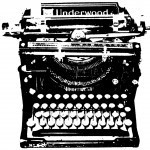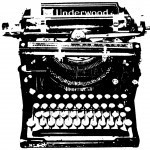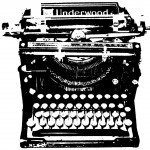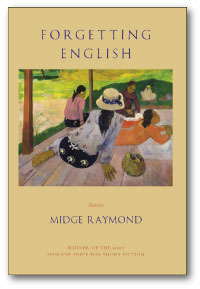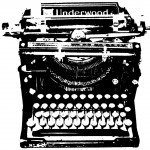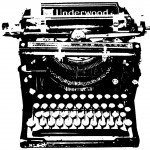Midge Raymond's Blog, page 39
April 23, 2012
Weekly Writing: Family history
Think of a relative who died before you were born — someone whom you’ve heard about through family stories but have never met. Write down as much as you know about this person, including how the two of you might’ve gotten along if you’d had the chance to know each other. When you run out of the knowledge you have, continue to develop this character as a fictional one and see where this takes you.

April 16, 2012
Weekly Writing: Signs
I can’t remember where I first heard that I’d be blessed with good luck if a ladybug landed on me or if I picked up a penny off the street, but the notions themselves have certainly stuck with me. To this day, I adore ladybugs, and I’m always scooping up pennies from the street, which I admit is a little sad.
What are your good-luck charms? Write about something you believe is a sign of good luck, including how you first learned about it (if you can recall) and whether you still believe in it…and why or why not.

April 9, 2012
Weekly Writing: Peace, love, and understanding
Write about the last person who annoyed you and why. Next, describe something you like about this person.
Finally, write about yourself from this person's POV. How do you imagine he/she perceives you and why?
(This is also a really fun exercise to apply to fictional characters.)

April 4, 2012
Ask Midge: Literary contests

Q: How do I know which literary contests are worth entering? Are some better than others?
A: I recommend doing a lot of research before entering any type of literary contest — whether you're entering a single poem or an entire short story collection, you'll want to make sure that it's a magazine or publisher you know of, respect, and want to work with. Some contests may in fact be a better fit for your work than others — but most of all, you'll want to avoid contests that could be scams (sadly, there are all too many of them out there). For the most part, though, contests are great — in fact, winning a university press contest is what led to the publication of the first edition of Forgetting English back in 2009.
So here are a few tips for researching and entering contests, whether you have one story/poem or a whole collection …
First, get familiar with any contest you're thinking of entering. How long has it been around? (If it's the contest's first year, on one hand, you may have good odds of winning; on the other hand, if it hasn't been around for a while, you may not know whether it's legitimate until you enter.) Is the contest supported by a well-known organization, such as a literary magazine, a small press, or a university? Do you like and respect its products, whether it's a literary magazine or a book publisher? Make sure you're completely comfortable with the organization running the contest before you send anything in, especially money.
Consider the fee. Even legitimate contests usually charge fees these days, using the money to administer the contest and to offer judges a stipend. Paying attention to the cost may give you an idea of whether the contest is legit or not — for example, most contests for literary magazines charge fees from $5 to $15 (sometimes as high as $20) to enter a short story or selection of poems; contests for book-length works usually charge about $25. If it's much higher than this, the contest may not be a reputable one (if, say, a contest asks for $30 or more for a single story or charges more than $50 for a manuscript). Of course, it's always possible that these are reputable contests — some simply have higher fees — but if it's far above the average, why not instead support the magazines and presses that work hard to keep fees reasonable for authors?
Consider the award. Another red flag is if there are no cash prizes for the winners, or if the prize is way out of line with the fee. All contests that ask you to pay a fee should offer a cash award (often these range from $500 to $1,000 for a story or group poems, and from $1,500 to $2,500 or more for a small-press manuscript award). If there's no award, then what do the fees go toward? Also, make sure the fees and awards align — while some emerging lit mags and presses offer smaller awards, if you're paying $20 for a short-story award that only pays the winner $100, that's not a sign of a well-run competition.
Learn about the judge. Good contests often invite well-known authors to be a final judge, and this is usually a sign of a good contest. Also look into who does the first round of readings/rejections — magazine editors, or interns? Make sure you're comfortable with the review process before you enter. You might also note whether a contest is judged blindly or not — contests are a lot more fair if the playing field is leveled by having no author names on the manuscripts; this way, readers and judges look at every piece with a completely open mind, which is one of the biggest advantages of entering contests: No one knows whether you're an unpublished author or Joyce Carol Oates.
Submit your very best work. For contests, this is especially important — you'll be competing with other authors submitting their very best (few authors spend money on reading fees to submit a half-baked story). So be sure your work is polished (some editors are very fussy about typos) and that it's the best it can be. Spend time reading the contest issues of literary magazines as well as books that have won manuscript contests — this will give you a good idea of what the press is looking for and what it considers award-winning material.
Follow guidelines carefully. This is even more important than with regular submissions because if your work gets tossed out for not meeting guideline requirements, you've also lost your submission fee. If they say no cover letter or acknowledgments, do not submit them. If they say your name should not appear on the manuscript, double check to make sure it is not there. If they ask you not to staple your pages or to submit electronically using an RTF file instead of a Word doc, do it. All this may take a little extra time, but it's better than having your submission disqualified.
If at first you don't succeed… Always keep trying. Literary magazines get hundreds, if not thousands, of entries for each contest they hold — and book publishers may receive 500+ submissions for a single contest. It's tough out there — but winning, or even placing, in a contest can do wonders for your exposure, not to mention your bank account. If you win $1,000 in a contest, I suggest using half to celebrate and using the other half to create a "contest fund." You can then use that $500 to enter up to 50 literary magazine contests, or up to 20 manuscript contests…and if you win another award, you'll be able to keep on going.
Good luck!

April 2, 2012
March 26, 2012
Weekly Writing: Shopping
March 19, 2012
Weekly Writing: A road trip to “On the Ground”
Good morning, writers!
For our writing prompt today, I thought we’d take a little road trip over to the Conversations Across Borders blog, “On the Ground.” For any of you who aren’t yet familiar with Conversations Across Borders, it is a fabulous nonprofit organization, based in the Pacific Northwest, whose mission is to connect and support readers and writers around the world. This mission is accomplished through four programs: Cab Literary Journal, the Conversations Across Borders Project, writing workshops, and the Writers in the Schools Program. All proceeds from these programs are given as grants to schools and writing programs. For a little more information on CAB, check out this Q&A with one of its founders.
Meanwhile, one way to get familiar with CAB and everything it’s about is to read On the Ground. Visit, read, comment, and come back. Click here for today’s writing prompt, and after you’ve done the prompt, stay awhile and enjoy learning more about CAB.

Weekly Writing: A road trip to "On the Ground"
Good morning, writers!
For our writing prompt today, I thought we'd take a little road trip over to the Conversations Across Borders blog, "On the Ground." For any of you who aren't yet familiar with Conversations Across Borders, it is a fabulous nonprofit organization, based in the Pacific Northwest, whose mission is to connect and support readers and writers around the world. This mission is accomplished through four programs: Cab Literary Journal, the Conversations Across Borders Project, writing workshops, and the Writers in the Schools Program. All proceeds from these programs are given as grants to schools and writing programs. For a little more information on CAB, check out this Q&A with one of its founders.
Meanwhile, one way to get familiar with CAB and everything it's about is to read On the Ground. Visit, read, comment, and come back. Click here for today's writing prompt, and after you've done the prompt, stay awhile and enjoy learning more about CAB.

March 13, 2012
Jane Friedman defines “author platform”
I couldn’t possibly define “author platform” any better than Jane Friedman does in this blog post, so I won’t even try. This is truly a post that anyone who wants to publish a book should read — even better, prospective authors should read this long before publication is on the horizon.
Whether fiction or nonfiction, books usually take a while to write — years, in most cases. Yet somehow, many authors seem to be rapidly approaching their publication dates before realizing they have to build a platform (a few years ago, this was me). And as Jane so accurately points out, building a platform does not happen overnight: In fact, a solid platform takes years to build (especially if you want to avoid all that she tell us a platform is not, such as “hard selling” and “annoying people,” which no author wants to do).
I have to admit that I began writing and publishing stories even before a “platform” was the first thing an editor or agent asked about. I didn’t know (or care) about having one — but fortunately for me, by the time I had a book contract, I discovered that I sort of did have one. I was a teacher who was developing a mailing list and writing a blog; I’d published stories in dozens of magazines and journals. Today, I work to keep up with all these things, including writing nonfiction articles, and even a book, on the creative process. I’m on Facebook and Twitter (a little reluctantly sometimes) and even though all this takes time away from writing, it’s all so important as it can still be a challenge for an author to find her audience.
For all of you out there who are still working on your books, know that it’s never to early to think about your platform. And if you cringe at the very thought of the word “platform,” you’re not alone — but think of it this way: How will you find an audience for your book? While it’s true that some writers seem to be overnight successes, the vast majority of us will have to find our audience on our own. Many authors think that marketing isn’t their job, that it’s only about the writing — yet this couldn’t be further from reality. This isn’t to say that a platform should come first, only that it’s something that needs to be developed along with your creative project so that when your book is ready for the world, so are you as a writer. After all, what’s the good in writing that book when you’re not in a good position to find all the readers you possibly can?
As Jane tells us, “It’ll be a long journey.” Start now, and you’ll be able to take your time and even have a little fun.

Jane Friedman defines "author platform"
I couldn't possibly define "author platform" any better than Jane Friedman does in this blog post, so I won't even try. This is truly a post that anyone who wants to publish a book should read — even better, prospective authors should read this long before publication is on the horizon.
Whether fiction or nonfiction, books usually take a while to write — years, in most cases. Yet somehow, many authors seem to be rapidly approaching their publication dates before realizing they have to build a platform (a few years ago, this was me). And as Jane so accurately points out, building a platform does not happen overnight: In fact, a solid platform takes years to build (especially if you want to avoid all that she tell us a platform is not, such as "hard selling" and "annoying people," which no author wants to do).
I have to admit that I began writing and publishing stories even before a "platform" was the first thing an editor or agent asked about. I didn't know (or care) about having one — but fortunately for me, by the time I had a book contract, I discovered that I sort of did have one. I was a teacher who was developing a mailing list and writing a blog; I'd published stories in dozens of magazines and journals. Today, I work to keep up with all these things, including writing nonfiction articles, and even a book, on the creative process. I'm on Facebook and Twitter (a little reluctantly sometimes) and even though all this takes time away from writing, it's all so important as it can still be a challenge for an author to find her audience.
For all of you out there who are still working on your books, know that it's never to early to think about your platform. And if you cringe at the very thought of the word "platform," you're not alone — but think of it this way: How will you find an audience for your book? While it's true that some writers seem to be overnight successes, the vast majority of us will have to find our audience on our own. Many authors think that marketing isn't their job, that it's only about the writing — yet this couldn't be further from reality. This isn't to say that a platform should come first, only that it's something that needs to be developed along with your creative project so that when your book is ready for the world, so are you as a writer. After all, what's the good in writing that book when you're not in a good position to find all the readers you possibly can?
As Jane tells us, "It'll be a long journey." Start now, and you'll be able to take your time and even have a little fun.


